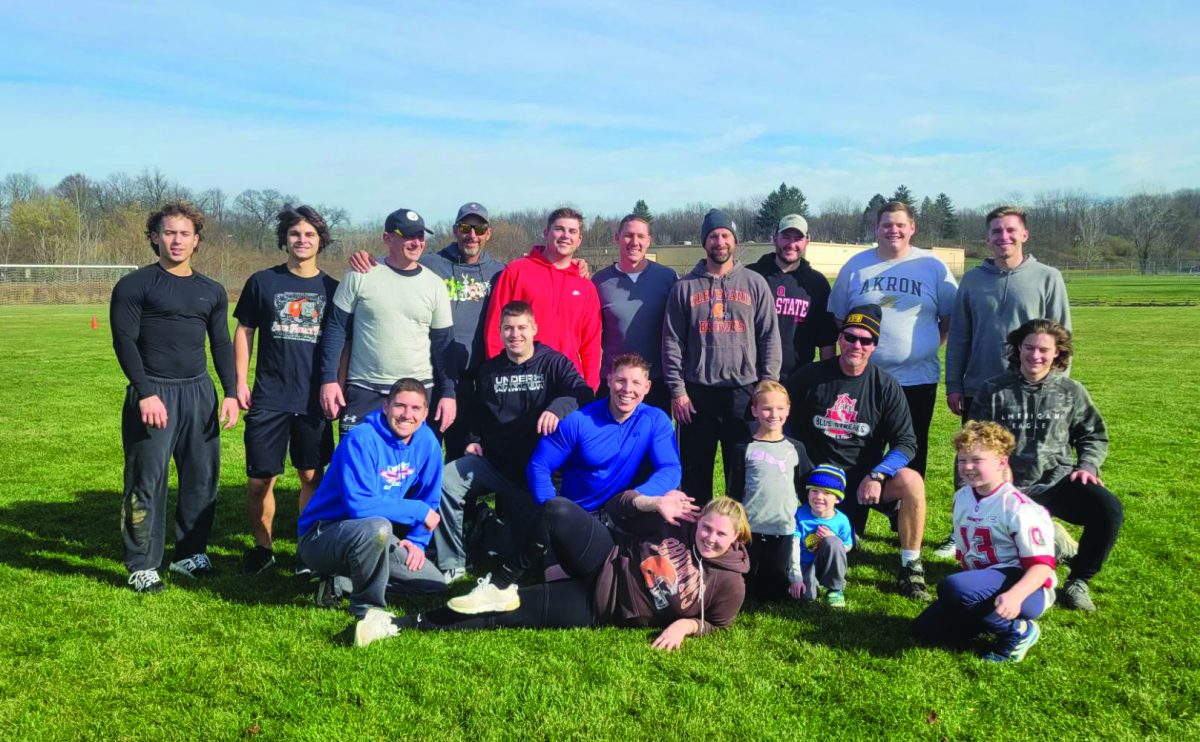Pro
By Lauren Hepler / Sports Editor (2007-2008)
The big one-eight: a milestone for freedom-hungry teenagers everywhere. Here in Ohio, turning 18 gives an individual the right to get a tattoo, buy a lottery ticket or book a hotel room.
Careful, though—turning 18 isn’t all fun, as legally becoming an adult also brings some pretty serious responsibility.
Eighteen-year-olds are first faced with the legal requirement of registering for the draft. Then there’s the big one: the right to vote.
Here in Bexley, 18-year-olds are also granted another important political right: theright to run for mayor.
With the first Bexley mayoral election in recent memory quickly approaching, a Bexley student, age 18, has chosen to run, raising the question of whether or not an 18-year-old still in high school should even be allowed on the ballot. An adult is an adult, and all adults are given equal rights. Why, then, should distinctions based on age be made to prevent younger adults from running for mayor?
Granted, older individuals have had more life experience and may appear to have stronger qualifications for a position of such high prestige, but still, there is too much variation among individuals to make the sweeping generalization that no 18-year-old is fit to be mayor.
I’ve met teenagers who are intelligent, well-spoken, genuine people that seem much older than they actually are. Conversely, I’ve met immature, ignorant middle-aged men that seem to have stopped developing intellectually around their middle school graduation.
Along with this, denying 18-year-olds the right to run for mayor presents another dilemma. What’s the difference between an 18-year-old and a 19-year-old? What about a 19-year-old and a 20-year-old? At what age is an individual finally ready to hold a public office?
Trying to differentiate between adults’ maturity is almost impossible. When an individual thinks that he or she is capable of doing the job, he or she should be allowed to start a campaign. From here, it is up to the electorate to educate themselves on all of the candidates’ policies, then choose to vote for a younger candidate to fill the position.
It should be up to the public to decide who they want in charge, and an entire age demographic should not be barred from consideration based solely on stereotypes about the immaturity of 18-year-olds. What good is it to be merely considered a legal adult?
Unless this label is put into action and actually allows for the growth of an individual’s rights, the title of “adult” is completely empty. Until the age of adulthood is raised, everyone over the age of 18 should be allowed to exercise his or her right as an adult to run for mayor.
Denying 18-year-olds the right to run for mayor would be unfair to the community, because it is entirely possible that the best candidate could also be the youngest.
Con
By Jessica Kirschner / News Editor (2007-2008)
As 18-year-olds, most of us have never left home, excluding various summer camp experiences. We have free meals provided to us by our parents, free laundry service courtesy of our parents and most of our other purchases are either paid for or subsidized by our parents.
Other 18-year-olds have already started college, venturing into a world without their parents.
But at college we still have meals provided to us every day, a laundry service conveniently located in the basement of our dorms and our parents still subsidize most of our purchases in addition to paying the hefty tuition for college.
So, how many 18-year-olds have ever had to take care of themselves?
Without having the opportunity to take care of ourselves, we can’t be expected to take care of a whole city. By allowing an 18-year-old to run for mayor, that’s what is being asked of the candidate. If an 18-year-old actually won the election, would they be capable of running the city?
It’s not that as an 18-year-old, a person is incapable of running a city; it’s just that they lack certain other experiences that would be key in determining their ability. And as we know, the first time we try something, we usually hit some serious bumps along the way.
With an 18-year-old candidate, the city would be an experiment to see if a person is actually capable of accomplishing certain activities.
The founders were wary of this when they set in place the qualifications for a presidential candidate. And if there are requirements for president, there should be requirements for a local government office.
People have to be at least 35 before they can consider running for president. By then, the person has moved out of his or her parents’ house and has managed his own finances, at least enough to pay taxes and rent. Maybe he hit some pitfalls along the way, but he figured out what he did wrong and recovered. Now he provides his own meals, laundry and pays for his own purchases out of his own money.
If instead we let an 18-year-old run for president, he would experience the pitfalls of trying something for the first time while in office. He would learn what to do and what not to do while in office.
Despite all of the advisors that would surround him, if he signs off on one wrong order because he’s learning what to do instead of already knowing, the whole country could fall into chaos.
Although on a much smaller scale, it’s the same situation for mayor. As a city, we don’t want an 18-year-old to learn the practical knowledge of finance, along with personal management, while in office.
We want someone with experience. One who instead of being led because he is learning, leads. So when an 18-year-old has significant experience with finance and management, let me know. Maybe I’ll vote for him. Until then, I’ll be voting for the one with experience.















